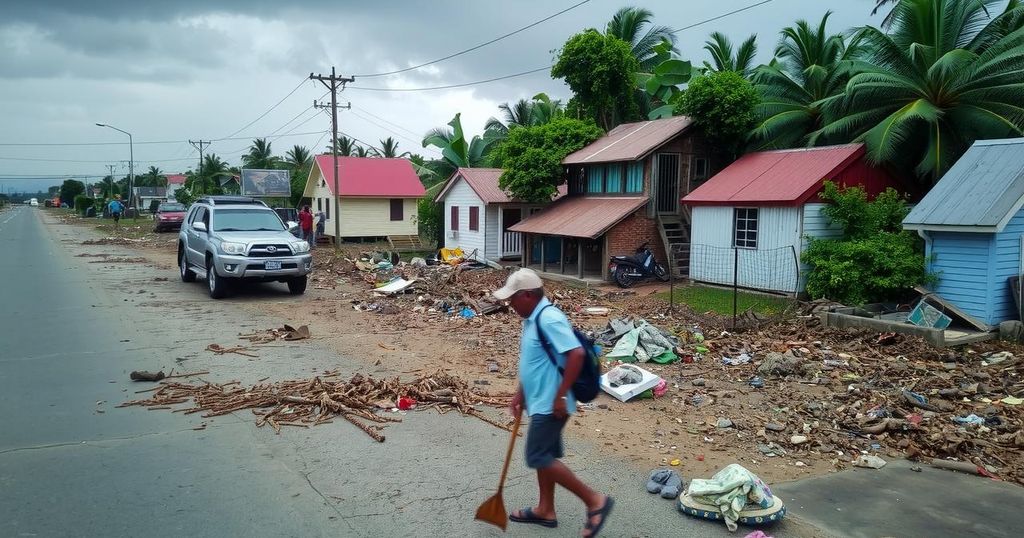Significant Increase in Climate Disasters in Brazil: New Study Reveals
A study highlights a dramatic increase in climate disasters in Brazil, reporting an average of 4,077 incidences annually from 2020 to 2023, nearly double the previous average. This trend correlates with rising ocean temperatures and has led to estimated economic losses of $88.4 billion since 1995. Urgent measures are required to mitigate these impacts, especially with Brazil hosting COP30 in November 2025.
A recent study conducted by the Brazilian Alliance for Ocean Literacy, in conjunction with Brazil’s government and UNESCO, has revealed a dramatic increase in climate-related disasters in Brazil over the past few years. According to government data, the frequency of these disasters surged to an annual average of 4,077 incidents between 2020 and 2023, nearly doubling the previous average of 2,073 disasters from 2000 to 2019. The report categorizes these incidents to include droughts, floods, extreme weather events, and more, emphasizing the escalating severity attributed to climate change.
The research, executed by the Federal University of Sao Paulo’s research arm, demonstrated a direct correlation between climate disasters in Brazil and rising ocean surface temperatures. The situation has been exacerbated by unprecedented drought and flooding events in 2024. The study estimates that Brazil has incurred economic losses amounting to $88.4 billion due to climate disasters from 1995 to 2023, highlighting the urgent need for comprehensive measures to mitigate climate change impacts. In preparation for the COP30 UN climate conference to be held in Brazil in November 2025, the researchers underscored the necessity of both enhancing resilience and adhering to the goals set forth in the Paris Agreement.
Climate disasters have been increasingly prevalent across the globe and particularly in Brazil, where the frequency and intensity of such events have escalated in recent years. The Brazilian climate landscape has faced various disasters including droughts, flooding, and storms, reflecting the profound impact of climate change in the region. The 2024 incidents of severe drought and flooding further illustrate the ongoing climate crises that Brazil must confront. Understanding the statistics and implications of these disasters is crucial in developing strategies for climate adaptation and resilience, as Brazil prepares to take a leading role in global climate discussions at COP30.
In conclusion, the alarming rise in climate disasters in Brazil necessitates immediate and effective actions to combat climate change and enhance resilience. The study indicates a significant increase in occurrences and economic losses over the years, calling for urgent international cooperation and adherence to established climate accords. As Brazil gears up to host COP30, the need to address these challenges becomes ever more pressing, underscoring the importance of global efforts to mitigate the effects of climate change.
Original Source: www.barrons.com




Post Comment